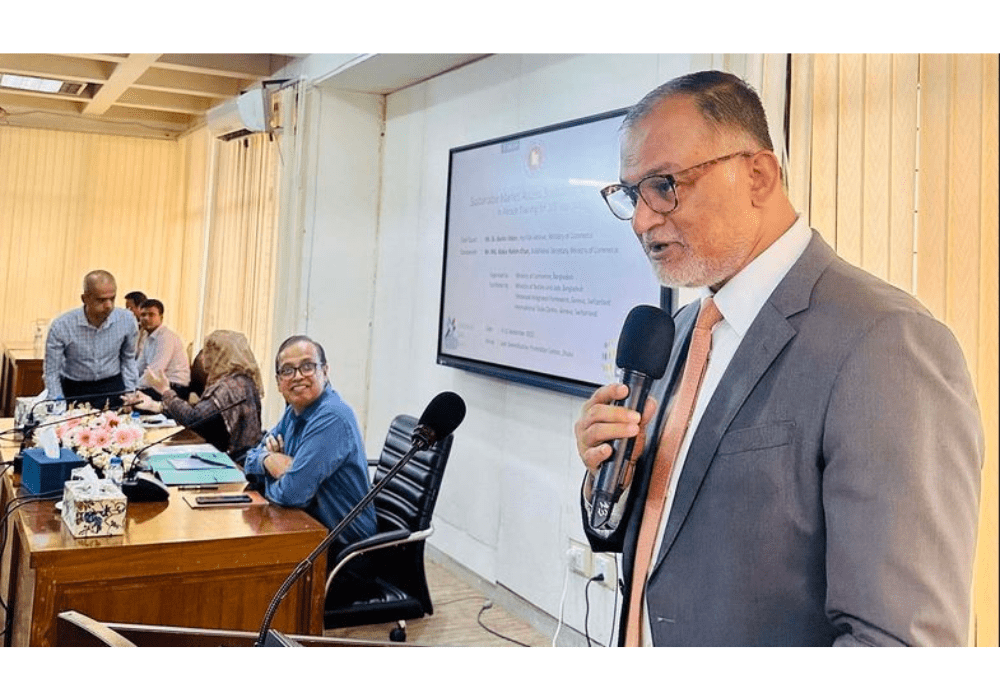Textiles and Jute Adviser Sk Bashir Uddin has called on entrepreneurs to prioritise both practicality and aesthetics in jute products to secure stronger demand at home and abroad. He was speaking at the inauguration of a three-day boot camp on sustainable market access for jute-based small and medium enterprises, held at the Jute Diversification Promotion Center (JDPC) in Farmgate, Dhaka.
“It’s not possible to go far by only making flowers and fruits with jute,” Bashir said. “When you make such decorative items, people enjoy looking at them but they don’t buy them. To move forward, we must make things that people actually purchase, things that serve a practical purpose.”
Read More: Smart Logistics Key to Bangladesh’s Survival After LDC Graduation
The adviser noted that the government is actively working to create both domestic and international market access for jute products. As part of this effort, the government initially introduced 30 lakh jute bags into the market, later expanding that figure to one crore. To promote these products, a 30–40 percent subsidy has been provided for marketing, alongside dedicated budget allocations.
However, Bashir expressed dissatisfaction with the slow response from entrepreneurs. “Completing a tender process has taken them four to five months, which is not satisfactory,” he said, adding that faster action is necessary to seize opportunities.
He outlined three essentials for successful product development: practical usability, aesthetic appeal, and strong market access capacity. Without these elements, he warned, jute products will struggle to reach their full potential in competitive markets.
Read More: High Import Taxes Slow Apparel Sector’s Solar Push in Bangladesh
The boot camp brought together 105 small and medium entrepreneurs working with jute products, who are receiving training on sustainability, innovation, and market development. Other speakers included JDPC Director General Md Zahid Hossain, WTO Cell Joint Secretary Shayla Yasmin, global strategist Tara Malhare, and International Trade Center project coordinator Dr Dang Bruce.
Bangladesh, once the world’s leading exporter of jute, is now working to revive the sector by moving beyond traditional decorative items and into products with everyday utility and global appeal. With government support and entrepreneurial innovation, jute is being positioned as both a sustainable material and a competitive export product.


